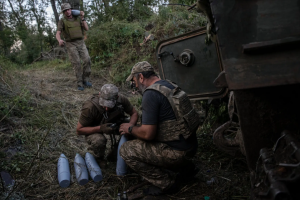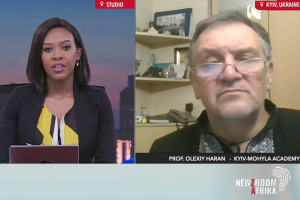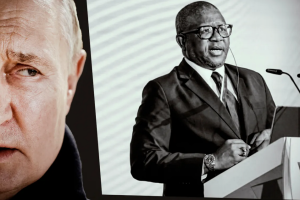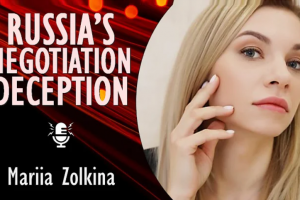NATO once again a priority or how Kyiv is modifying its Euro-Atlantic srategy
On June 8, an extremely important event without understatement took place in the Ukrainian parliament. Indeed, Ukraine gaining NATO membership was set as its main objective and one of the key priorities of its foreign policy and national security. In essence, this event was a logical harmonization of that which Ukraine has been proclaiming since 2014 in the form of political statements, on the one hand, and what was in reality fixed at the legislative level, on the other. Two key laws of Ukraine defining the principles of the country’s domestic, foreign and security policies were supplemented with a simple, yet strategically important reference. Namely, joining the North-Atlantic Alliance was officially defined as a goal and priority for Ukrainian state.
Why is this strategically important? The answer lies on the surface. Indeed, after the change in government in 2014 the political invention of the Yanukovych regime in the form of the out-of-bloc status of Ukraine was cancelled and edited out of Ukrainian legislation. Nevertheless, the country’s leadership did not take the next step that was to logically follow this latest move: namely, defining its new priority. That said, this would not be such a huge matter of principle if it were not for a few “buts”.
Firstly, this new priority – namely, NATO membership – was constantly alluded to only in the form of statements and declarations. That meant that de facto it was on the daily agenda, but de jure it was not substantiated by any rationale.
Secondly, the difference between what the Ukrainian ruling authority was telling the domestic audience and what it expressed to the foreign audience was quite tangible. As such, the Ukrainian audience heard more often and more vociferously about the path towards membership in NATO. Instead, the statements made to the foreign audience were always cautious and remained within the legal framework. And this formal framework was defined by the method “meeting the criteria necessary to gain membership in NATO, but in no way bona fide membership per se. The difference is obvious. And though it was motivated by the fact that at this point joining the Alliance is not realistic and that it would be better to deepen cooperation and strive to meet the set criteria, this conflict had its place and provided room for maneuvering and manipulation. The suspension of discussions about Ukraine joining NATO on the part of the West was absolutely justified, arguing that Ukraine itself has not clearly defined whether it is aspiring to membership in the Alliance or not.
Ukrainian politicians could have balanced between the attitudes of different categories of the electorate inside the country and the positions of different NATO and EU member countries on the international arena. In general, to a certain extent such a situation could have persisted further – it was in many ways a unique compromise between the attainable and the desired, between political interests and a struggle and realistic formation of a national security policy and foreign relations. Why exactly this moment was chosen to make such changes at the legislative level is difficult to say. Most likely, the idea is to make decisions one step at a time. Here both very concrete things, in particular, the expected visit of the delegation of the North-Atlantic Council and the contextual aspect such as changes in the overall situation play their roles. This would apply to the confidence that there will be enough votes in the parliament in favor of this decision, a certain reduction of tension on the front (meaning it is more likely that members of NATO will not perceive this decision as a reproach to Moscow at an “inconvenient moment”) and a gradual change in the line of behavior of the country’s leadership towards Russia in general. The last point, which is no less important point than domestic policy an increased accent on applying a “tough hand” in the domestic policy of the president’s political force towards Russia can be observed. From the outside these changes may not be noticeable, but on the domestic playing field the idea of a visa regime with Russia, for example, is once again being actively raised for discussion.
Without “sanctions” of the country’s leadership such an idea will not appear on the daily agenda, while together with other steps this means that today official Kyiv is less concerned about Russia’s reaction than it was earlier. Here it is worth adding to all the aforementioned yet another important argument at to why this decision was approved now and why this was a logical move in the current situation. This argument is the unprecedentedly high level of support of the movement towards NATO in Ukrainian society. Indeed, according to research conducted by the Democratic Initiatives Foundation and the Razumkov Center, if in December 2016 a referendum had been held regarding NATO membership of Ukraine, 71,5% of its participants would have voted “In favor”, while 23% would have voted “against” (with a show-up of 62% of the total amount of voters). From 2014 NATO remains the most popular option for the guarantee of the national security of Ukraine – 44% of Ukrainians feel this way, while the out-of-bloc status (26% in favor) and a military-political alliance in the post-Soviet territory (6.5% in favor) have lost the lion’s share of their proponents. Not reacting to the new realities of social moods would be nearsighted. Moreover, these figures will most likely “sink” with time. Precisely for this reason, if to use these figures as an argument then it is clear that there will never be a better moment to do so.
Overall, it is worth saying that of course the fact of approval of such changes to Ukrainian legislation will not automatically change the daily agenda of Ukraine-NATO bilateral relations in principle. What is important here is that these changes place important dots on the “i”: both for Ukrainian society and for Ukraine’s official relations with NATO. These changes form the ambitious goals, while the fact that membership is not possible “here and now” is not obstacle to Ukraine making a decision regarding these goals as it already did with regard to the European Union.
In reality, just as up until June 8 the key content of bilateral relations with the Alliance will be meeting the criteria for gaining membership, but in this case the accents have finally been properly placed: meeting the criteria is only a means, not an end. Whether official Kyiv will be consistent in taking its new approach to relation with NATO will very soon become clear: by the pace of domestic security and defense reforms, by other vectors of democratization and by how Kyiv will use the possibilities of assistance from NATO that have already been provided.








